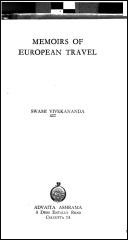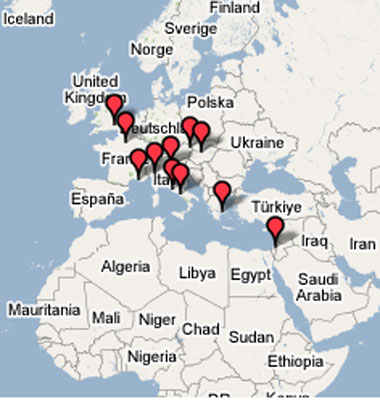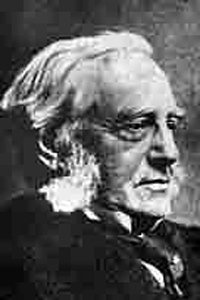Memoirs of European Travel – Part I
 (The Memoirs of European Travel were addressed to Swami Trigunatitananda, editor of the Bengali magazine ‘Udbodhan’ and appeared in that magazine in serial form. This is translated from the original version in Bengali)
(The Memoirs of European Travel were addressed to Swami Trigunatitananda, editor of the Bengali magazine ‘Udbodhan’ and appeared in that magazine in serial form. This is translated from the original version in Bengali)
Memoirs of European Travel – Part II

We have an adage among us that one that has a disc-like pattern on the soles of his feet becomes a vagabond. I fear, I have my soles inscribed all over with them. And there is not much room for probability, either. I have tried my best to discover them by scrutinising the soles, but all to no purpose — the feet have been dreadfully cracked through the severity of cold, and no discs or anything of the kind could be traced. However, when there is the tradition, I take it for granted that my soles are full of those signs. But the results are quite patent — it was my cherished desire to remain in Paris for some time and study the French language and civilisation; I left my old friends and acquaintances and put up with a new friend, a Frenchman of ordinary means, who knew no English, and my French — well, it was something quite extraordinary! I had this in mind that the inability to live like a dumb man would naturally force me to talk French, and I would attain fluency in that language in no time — but on the contrary I am now on a tour through Vienna, Turkey, Greece, Egypt, and Jerusalem! Well, who can stem the course of the inevitable! — And this letter I am writing to you from the last remaining capital of Mohammedan supremacy — from Constantinople!
Memoirs of European Travel – Addenda
On Dr. Paul Deussen
On Professor Max Muller

Sketch of the Life of Pavhari Baba
To help the suffering world was the gigantic task to which the Buddha gave prominence, brushing aside for the time being almost all other phases of religion; yet he had to spend years in self-searching to realise the great truth of the utter hollowness of clinging to a selfish individuality. A more unselfish and untiring worker is beyond our most sanguine imagination: yet who had harder struggles to realise the meaning of things than he? It holds good in all times that the greater the work, the more must have been the power of realisation behind. Working out the details of an already laid out masterly plan may not require much concentrated thought to back it, but the great impulses are only transformed great concentrations. The theory alone perhaps is sufficient for small exertions, but the push that creates the ripple is very different from the impulsion that raises the wave, and yet the ripple is only the embodiment of a bit of the power that generates the wave.
Aryans and Tamilians
A veritable ethnological museum! Possibly, the half-ape skeleton of the recently discovered Sumatra link will be found on search here, too. The Dolmens are not wanting. Flint implements can be dug out almost anywhere. The lake-dwellers — at least the river-dwellers — must have been abundant at one time. The cave-men and leaf-wearers still persist. The primitive hunters living in forests are in evidence in various parts of the country. Then there are the more historical varieties — the Negrito-Kolarian, the Dravidian, and the Aryan. To these have been added from time to time dashes of nearly all the known races, and a great many yet unknown — various breeds of Mongoloids, Mongols, Tartars, and the so-called Aryans of the philologists. Well, here are the Persian, the Greek, the Yunchi, the Hun, the Chin, the Scythian, and many more, melted and fused, the Jews, Parsees, Arabs, Mongols, down to the descendants of the Vikings and the lords of the German forests, yet undigested — an ocean of humanity, composed of these race-waves seething, boiling, struggling, constantly changing form, rising to the surface, and spreading, and swallowing little ones, again subsiding — this is the history of India.
The Social Conference Address
“God created the native, God created the European, but somebody else created the mixed breed” — we heard a horribly blasphemous Englishman say.
India’s Message to the World
The following notes were discovered among Swami Vivekananda’s papers. He intended to write a book and jotted down forty-two points as a syllabus for the work, but only a few points were dealt with as an introduction by him and the work was left unfinished. We give the manuscript as found.